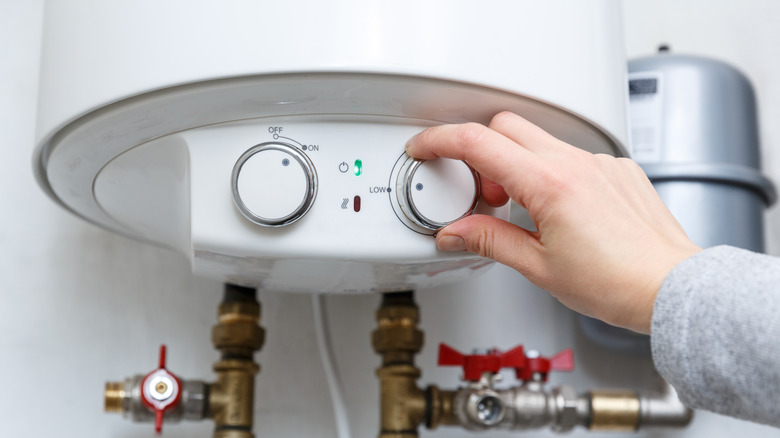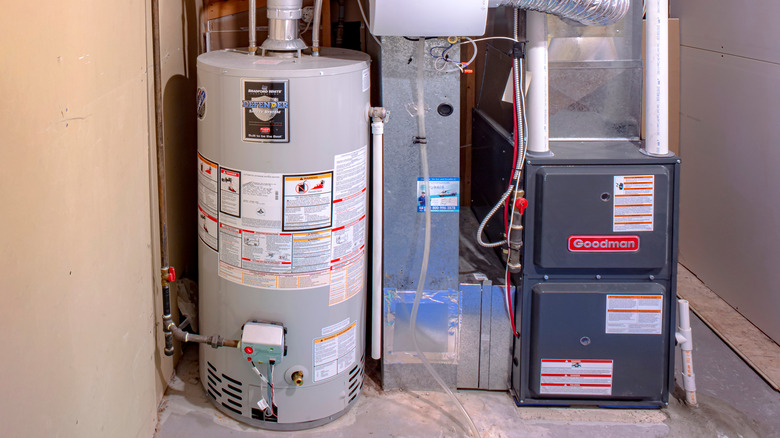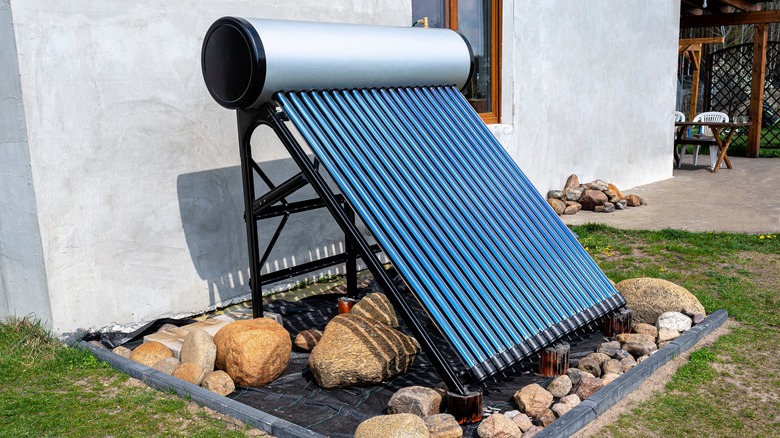Which Type Of Water Heater Is Right For Your Home?
While we often take them for granted until they break, water heaters work tirelessly to keep households running smoothly. However, the expense to heat water for home use makes a significant impact on the household budget. Picking the right one for your home should take several factors into consideration — the type of energy being used is one thing, along with the capacity, space considerations, and how much you can afford to spend buying a water heater.
There are five main types of water heaters available for domestic use but for most homeowners, it boils down to choosing between a storage tank and a tankless water heater. Alternatively, you can also opt for heat pumps, solar, or condensing units. Heat pump water heaters require extra space and have surrounding temperature limitations, solar water heaters take years to recoup the expense, and condensing models offer a larger capacity than many households require. That's why you'll likely be narrowing it down to storage tank and tankless models when you make a final selection.
Storage tank vs. tankless water heaters
Since storage tank models are the most common type of water heater for residential use, you're probably familiar with them. They store water in a tank, and energy is used to keep it heated so that it's ready to go when you need it. Storage tank water heaters come in both natural gas and electric versions. Gas units use about half as much energy as electric models although they're more expensive to buy initially. Both are available in models that hold up to 55 gallons of water and those with higher capacities to accommodate larger households. If you find that you consistently run out of hot water, that can be an indicator that your home would benefit from a larger unit.
Tankless water heaters — sometimes called on-demand or instantaneous water heaters — don't store water. Instead, they employ heating coils to raise the temperature of water only when you need it. This makes them more efficient in terms of energy use when you compare them to storage tank water heaters. The main limitation, though, is that they're not as effective when running hot water for more than one purpose at the same time, filling a bathtub while washing a load of whites, for instance.
Other types of water heaters
Solar water heaters are often mounted on the roof or in another location that gets plenty of sunshine. They require alternate energy sources to operate on cloudy days, so for many regions, they're not the best choice when the goal is energy efficiency. They can also be very expensive to install. If you have the space for it, you might consider a heat pump. This is a hybrid since it uses heat from the air to warm the water held in a tank, resulting in a 60% reduction in energy usage. They require more space, as much as 7 feet of clearance from the bottom to the ceiling, due to the heat pump being on the top of the unit. They don't work well in cold climates, however, with temps between 40 and 90 degrees Fahrenheit being optimal.
Condensing water heaters are a good alternative for homes that require a larger capacity tank and have gas as the energy source. They use exhaust gases that would typically be expelled from the unit to assist in heating the water, making make them much more energy efficient than standard tank water heaters.


